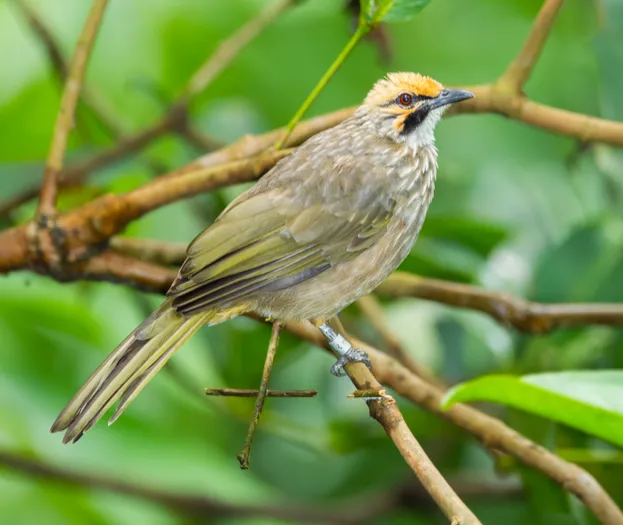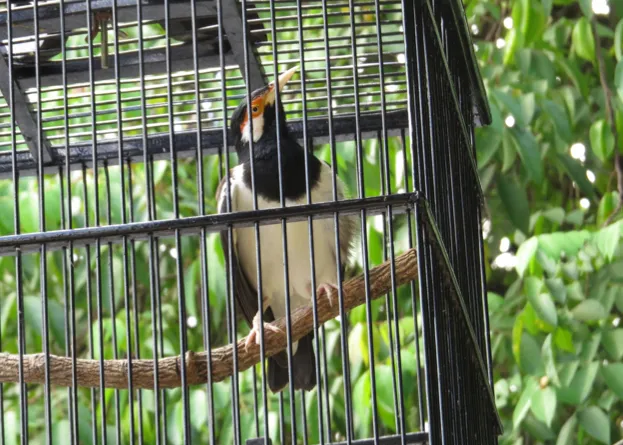After a recent update to the Indonesian government’s list of protected species, bird owners and breeders protested at the inclusion of a number of species.
Representatives from songbird groups met with government officials, leading to the removal of three species from the list – white-rumped shama, straw-headed bulbul and Javan pied starling.
The latter two are listed as Endangered and Critically Endangered respectively on the IUCN Red List.
“The update was meant to protect the species’ population from going extinct in the wild, so that the wild population can recover and be sustainable not just for two or three years, but longer,” said Sofi Mardiah, from Wildlife Conservation Society – Indonesia, to Mongabay.

BirdLife International believe that all three species should remain protected, particularly the Critically Endangered Indonesian endemic Javan pied starling, which has recently been split from the far more common and similar looking Asian pied starling.
"The Javan pied starling is often bred with the latter in the captive breeding industry," says Anuj Jain from Birdlife. "Because the Asian pied starling is common, there is almost no conservation attention given to Javan pied starling (with which it is confused) by breeders and as a result, trapping of both species continues."
"The Javan pied starling is already very rare in the wild, only surviving in tiny pockets of hills in central Java and possible escapes from the trade in Bali. Therefore, removing protection for Javan pied starling is disastrous for its survival in the wild."

The decision has also prompted the Indonesian Institute of Sciences to issue a letter recommending that the three species be returned to the protected species list.
On the other hand, songbird traders argue that as many of the species are bred on a large scale and thus are not endangered. In addition, the protection of these birds would mean the loss of livelihoods.
As explained by Basten Gokkon in his Mongabay article, there is a regulation that allows registered breeding facilities to catch protected species from the wild, and then sell their offspring.
The offspring from the wild-caught birds are not protected, and can be sold. As part of this regulation, the facilities are meant to release 10 per cent of these offspring.
However, many breeding centres and their birds are not registered. Many collectors prefer birds caught from the wild to captive-bred birds, and will pay a premium for them.
“It’s incredibly disappointing to see this backwards step, and the claims that many species are widely captive bred should be taken with a big pinch of salt. Often these operations are simply a way to launder wild birds," says Eleanor Paish, a wildlife filmmaker whose documentary 'Tainted Love' explores the Indonesian songbird trade.
"I personally witnessed this, whilst filming at a large ‘captive breeding’ facility, where hundreds of adult and subadult white-rumped shama were held in cages in a small, windowless room. However, there were no chicks, no eggs, and no closed rings (used to show that a bird is captive bred).”
Traders are now planning to pressure the government to allow them to trade more of the birds which are currently on the protected species list.
